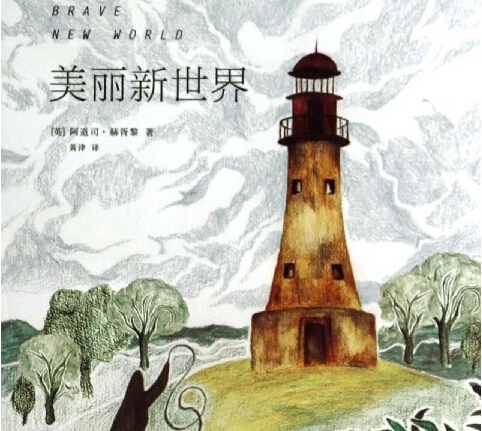The Savage was silent for a little. "All the same," he insisted obstinately, "Othello's good, Othello's better than those feelies."
野蠻人沉默了一會兒。“可是《奧塞羅》是好的,《奧塞羅》要比感官電影好。”
"Of course it is," the Controller agreed. But that's the price we have to pay for stability.
“當然要好,”總統表示同意,可那正是我們為安定所付出的代價。
You've got to choose between happiness and what people used to call high art.
你不能不在幸福和人們所謂的高雅藝術之間進行選擇。
We've sacrificed the high art. We have the feelies and the scent organ instead.
我們就用感官電影和馨香樂器代替了藝術。
But they don't mean anything.
可那些東西什么意思都沒有。
They mean themselves; they mean a lot of agreeable sensations to the audience.
意思就在它們本身。它們對觀眾意味著大量的感官享受。
But they're … they're told by an idiot.
可是,它們是……是一個白癡所講的故事。

The Controller laughed. You're not being very polite to your friend, Mr. Watson.One of our most distinguished Emotional Engineers …
總統哈哈大笑。你對你的朋友華生先生可不太禮貌,他可是我們一個最杰出的情緒工程師呢……
"But he's right," said Helmholtz gloomily. "Because it is idiotic. Writing when there's nothing to say …"
“可是他倒說對了,”赫姆霍爾茲陰郁地說,“無事可寫卻偏要寫,確實像個白癡……”
Precisely. But that require the most enormous ingenuity.
說個正著,但是那正好要求最巨大的聰明才智,
You're making fiivvers out of the absolute minimum of steel–works of art out of practically nothing but pure sensation.
是叫你使用少到不能再少的鋼鐵去制造汽車——實際上是除了感覺之外幾乎什么都不用,卻制造著藝術品。
The Savage shook his head. "It all seems to me quite horrible."
野蠻人搖搖頭。“在我看來這似乎可怕極了。”
Of course it does. Actual happiness always looks pretty squalid in comparison with the over-compensations for misery.
當然可怕。但是跟受苦受難的太高代價比起來,現實的幸福看起來往往相當廉價。
And, of course, stability isn't nearly so spectacular as instability.
而且,穩定當然遠遠不如動亂那么熱鬧;
And being contented has none of the glamour of a good fight against misfortune,
心滿意足也不如跟不幸做殊死斗爭那么動人;
none of the picturesqueness of a struggle with temptation,or a fatal overthrow by passion or doubt.
也不如抗拒引誘,或是抗拒為激情和懷疑所顛倒那么引人入勝。
Happiness is never grand.
幸福從來就不偉大。












